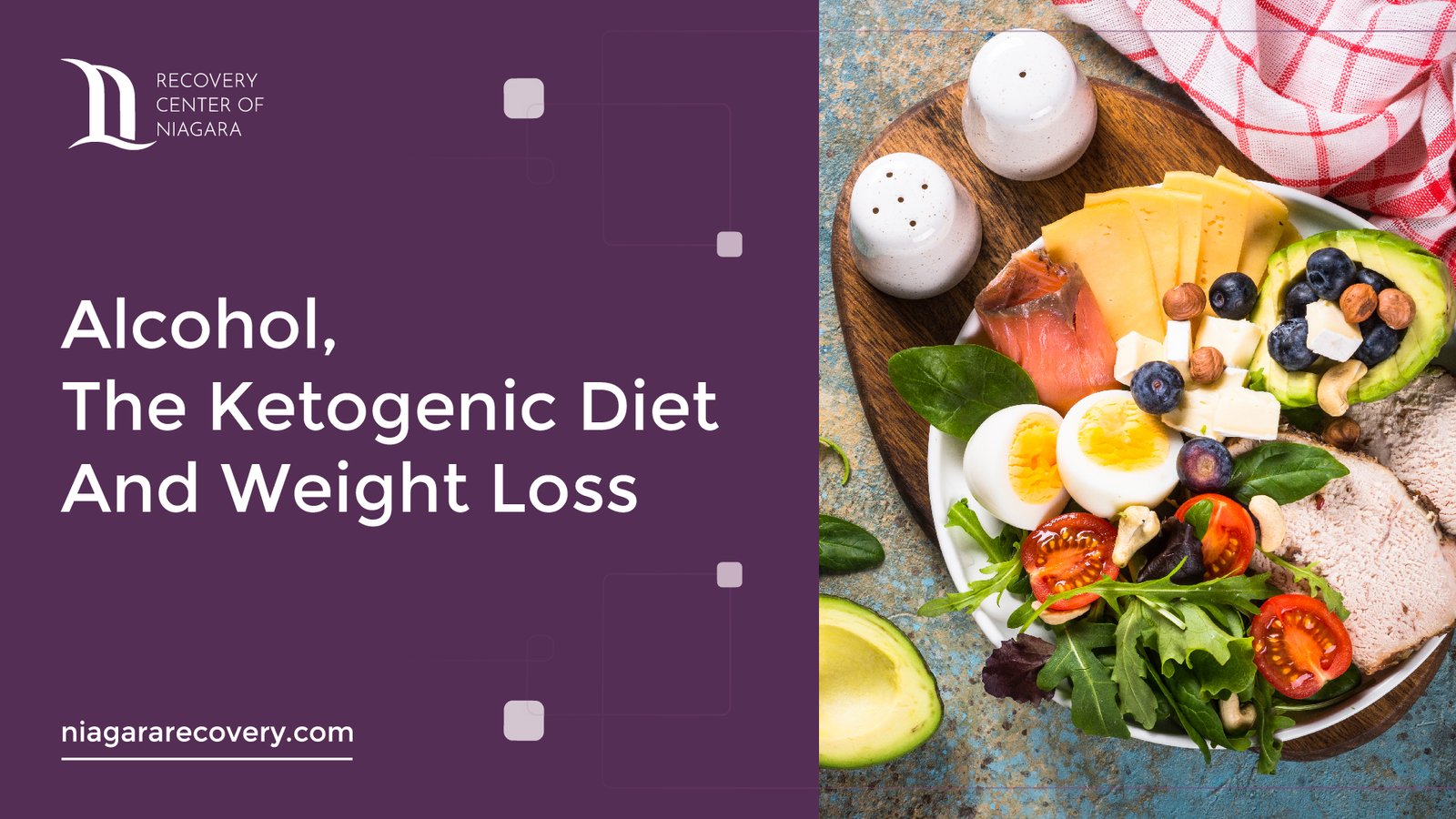So, you’ve decided to embark on the keto diet, but you may be wondering about the role alcohol plays in this low-carb lifestyle. Well, we’ve got the scoop for you! In this article, we’ll uncover the truth about alcohol consumption on a keto diet, so you can navigate your social gatherings and enjoy a drink or two while staying on track towards your health goals. Whether you’re curious about the impact on your ketosis state or concerned about hidden sugar in your favorite cocktails, we’ve got all the facts you need to sip responsibly and stay in ketosis. Cheers to that!
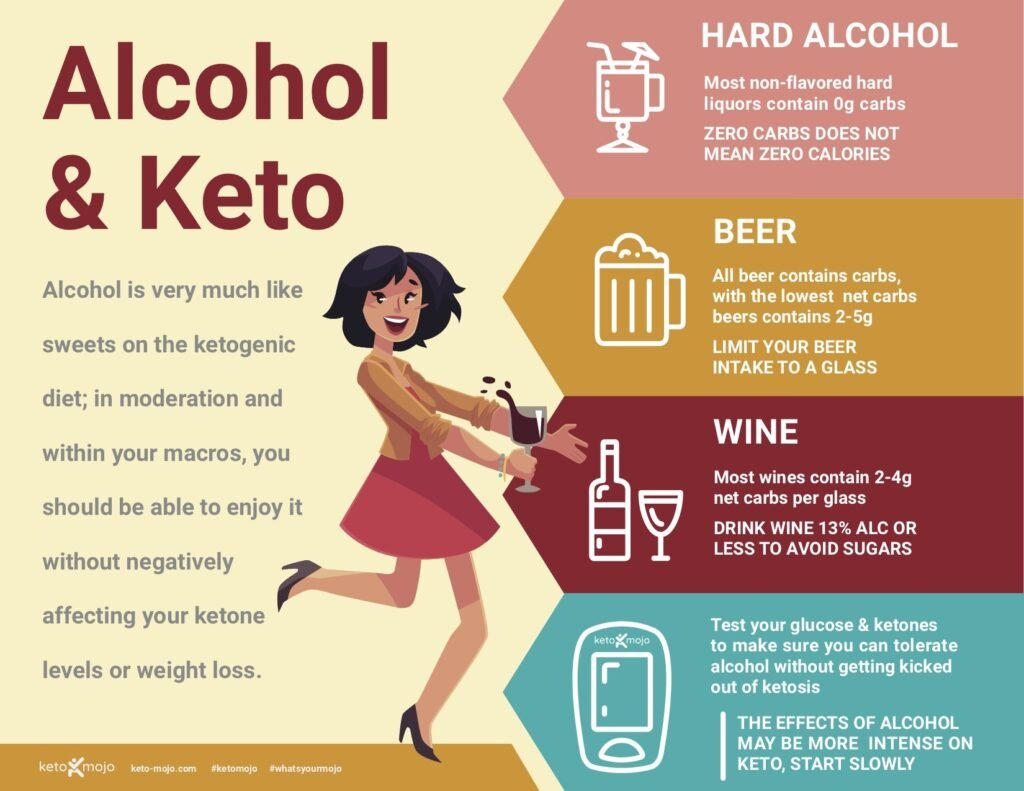
This image is property of keto-mojo.com.
Understanding the Keto Diet
Explanation of the Keto Diet
The keto diet, short for ketogenic diet, is a low-carb, high-fat diet that has gained popularity for its potential health benefits and ability to promote weight loss. The primary goal of the keto diet is to enter a state of ketosis, where your body switches from using glucose as its primary fuel source to using ketones, which are produced from the breakdown of stored fat. By significantly reducing your carbohydrate intake and increasing your consumption of healthy fats, you can encourage your body to enter and maintain ketosis.
How the Keto Diet Works
The keto diet works by drastically reducing your carbohydrate intake, typically to less than 50 grams per day. When you consume fewer carbohydrates, your blood sugar levels and insulin levels drop. This leads to a decrease in the production of glucose, which is the body’s main source of energy derived from carbohydrates. With limited glucose available, your body begins to break down stored fat into ketones, which can be used as an alternative source of fuel. This metabolic state is known as ketosis and is the goal of the keto diet.
Effects of Carbohydrate Restriction
One of the main effects of carbohydrate restriction on the keto diet is a reduction in insulin levels. Insulin is a hormone that is responsible for regulating blood sugar levels and facilitating the storage of excess glucose as fat. By minimizing carbohydrate intake, you can lower insulin levels and promote fat burning. Additionally, carbohydrate restriction can lead to a decrease in cravings and appetite, making it easier to reduce overall calorie intake, which can be beneficial for weight loss. However, it’s important to note that not all carbohydrates are created equal, and it’s crucial to focus on consuming whole, nutrient-dense foods while following the keto diet.
The Basics of Alcohol
Alcohol and its Composition
Alcohol, also known as ethanol, is a psychoactive substance that is consumed in various forms, such as beer, wine, and spirits. It is produced through the fermentation of sugar by yeast, which converts the sugar into alcohol and carbon dioxide. The alcohol content of different beverages can vary significantly. For example, beer typically contains around 4-6% alcohol by volume (ABV), wine ranges from 12-14% ABV, and spirits can have ABV levels as high as 40% or more.
Calories in Alcohol
Alcohol is not only known for its intoxicating effects, but it also contributes a significant amount of calories to your diet. Each gram of alcohol contains 7 calories, making it a dense source of energy. Additionally, alcoholic beverages often contain additional calories from carbohydrates, such as sugar and other additives. It’s important to note that these extra calories from alcohol are often considered “empty calories” as they provide little to no nutritional value.
Effects of Alcohol on the Body
Alcohol can have various effects on the body, both short-term and long-term. In the short term, consuming alcohol can lead to impaired judgment, coordination, and reaction time, increasing the risk of accidents and injuries. It can also affect your mood and sleep patterns. In the long term, excessive alcohol consumption can lead to liver damage, heart problems, and an increased risk of certain cancers. It’s crucial to consume alcohol in moderation and consider the potential risks associated with its consumption.
Alcohol and Ketosis
Ketosis and its Importance
Ketosis is a metabolic state in which your body switches from using glucose as its primary fuel source to using ketones. This switch occurs when carbohydrates are limited, and the body starts breaking down stored fat for energy. Being in ketosis has numerous benefits, such as increased fat burning and weight loss, improved mental clarity and focus, and stabilized blood sugar levels. It is the desired state for individuals following a keto diet.
How Alcohol Affects Ketosis
When it comes to alcohol and ketosis, it’s important to understand that alcohol is prioritized as a fuel source by the body. This means that when you consume alcohol, your body will burn off the alcohol before resuming the breakdown of fat for energy. As a result, consuming alcohol can temporarily halt the process of ketosis, as your body’s focus shifts to processing the alcohol. Additionally, some alcoholic beverages, such as beer and sweet cocktails, contain carbohydrates that can further impact your ketosis by raising blood sugar levels.
Ability to Get Back into Ketosis
While alcohol can temporarily interrupt ketosis, it doesn’t mean that you can’t get back into the metabolic state. Once the alcohol is metabolized and cleared from your system, your body will resume the process of burning fat for energy, and you can re-enter ketosis. However, it’s important to be mindful of your overall carbohydrate intake and alcohol consumption to maintain a state of ketosis consistently.
Best and Worst Alcoholic Drinks
Low-Carb Alcoholic Drinks
If you’re following a keto diet but still want to enjoy the occasional alcoholic beverage, there are several low-carb options to consider. Clear spirits like vodka, gin, and tequila are generally low in carbohydrates and can be mixed with sugar-free mixers like club soda or diet soda. Dry wines, such as red or white wine, can also be enjoyed in moderation as they typically contain fewer carbohydrates compared to sweeter wine varieties. Light beers and hard seltzers with low carbohydrate content can also be suitable choices for those on a keto diet.
Carb-Rich Alcoholic Drinks
On the other hand, there are alcoholic beverages that are particularly high in carbohydrates and can quickly derail your efforts to maintain ketosis. Beer, especially craft beers and those with higher alcohol content, is often high in carbohydrates due to the grains used in the brewing process. Sweet cocktails and mixed drinks, such as margaritas or daiquiris, can contain added sugars and syrups that significantly increase the carbohydrate content. It’s important to be cautious of these carb-rich alcoholic drinks if you’re aiming to stay in ketosis.
Hidden Carbs in Alcoholic Beverages
Apart from the obvious sources of carbohydrates in alcoholic beverages, such as sugar and grains, it’s important to be aware of hidden carbs that can add up quickly. Certain mixers, such as tonic water and fruit juices, can contain a significant amount of sugar and carbohydrates. Additionally, flavored spirits and liqueurs often contain added sugars and should be consumed in moderation or avoided altogether. Always check the nutrition labels or do your research to ensure you’re making informed choices that align with your keto diet goals.
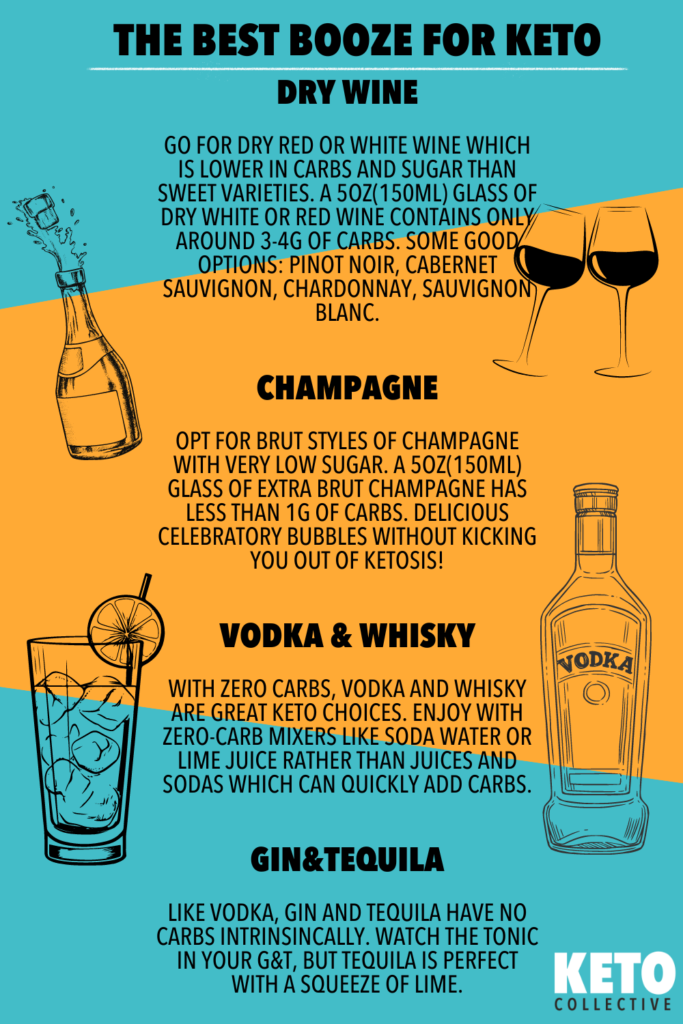
This image is property of cdn.shopify.com.
Moderation and Keto
Importance of Moderation
Moderation is key when it comes to incorporating alcohol into a keto diet. While it’s possible to enjoy alcoholic beverages occasionally and still maintain ketosis, it’s important to be mindful of your overall alcohol intake and its potential impact on your progress. Excessive alcohol consumption can hinder weight loss, disrupt sleep patterns, and negatively affect overall health. By practicing moderation, you can strike a balance between enjoying a social drink and staying on track with your keto lifestyle.
Tips for Moderating Alcohol Intake
If you’re looking to moderate your alcohol consumption while following a keto diet, consider the following tips:
-
Set limits: Establish specific guidelines for yourself on when and how much alcohol you plan to consume. Stick to these limits to help manage your overall intake.
-
Alternate with water: For every alcoholic beverage you consume, have a glass of water in between to stay hydrated and reduce the rate of alcohol consumption.
-
Choose quality over quantity: Opt for higher-quality alcoholic beverages that you can sip and savor, rather than consuming large volumes of cheaper options.
Effects of Excessive Alcohol on Ketosis
Excessive alcohol consumption can have several negative effects on ketosis and overall health. First, alcoholic beverages often contain carbohydrates and sugars that can increase blood sugar levels and kick you out of ketosis. Second, alcohol is processed by the liver, and excessive drinking can put a strain on this vital organ, potentially impacting its ability to produce ketones. Finally, excessive alcohol consumption can lead to poor sleep quality, hinder recovery, and make it more challenging to adhere to a healthy diet and lifestyle.
Alcohol and Weight Loss
Alcohol’s Impact on Weight Loss
While alcohol can be consumed in moderation on a keto diet, it’s important to note that it can still impact weight loss progress. Alcohol provides calories, and consuming too many calories from alcohol can lead to weight gain or hinder weight loss efforts. Additionally, the body prioritizes getting rid of alcohol before burning fat for energy, which can temporarily stall or slow down the fat-burning process.
Alcohol’s Effect on Metabolism
Alcohol can temporarily increase the metabolism, known as the thermic effect of alcohol. This means that when you consume alcohol, your body burns more calories in order to metabolize it. However, this effect is short-lived, and the increased metabolism is not significant enough to offset the additional calories consumed through alcohol. Ultimately, excessive alcohol consumption can disrupt the metabolic processes in the body and hinder weight loss efforts.
Strategies for Incorporating Alcohol while Losing Weight on Keto
If you’re looking to incorporate alcohol into your weight loss journey while following a keto diet, consider the following strategies:
-
Plan ahead: If you know you’ll be drinking alcohol at a social event, adjust your meals and macros for the day to accommodate the additional calories from alcohol.
-
Opt for lower-calorie options: Choose alcoholic beverages with lower calorie and carbohydrate content, such as light beers, dry wines, or spirits mixed with sugar-free mixers.
-
Be mindful of portion sizes: Pay attention to the serving sizes and stick to recommended portions. Avoid overserving yourself or drinking excessively.
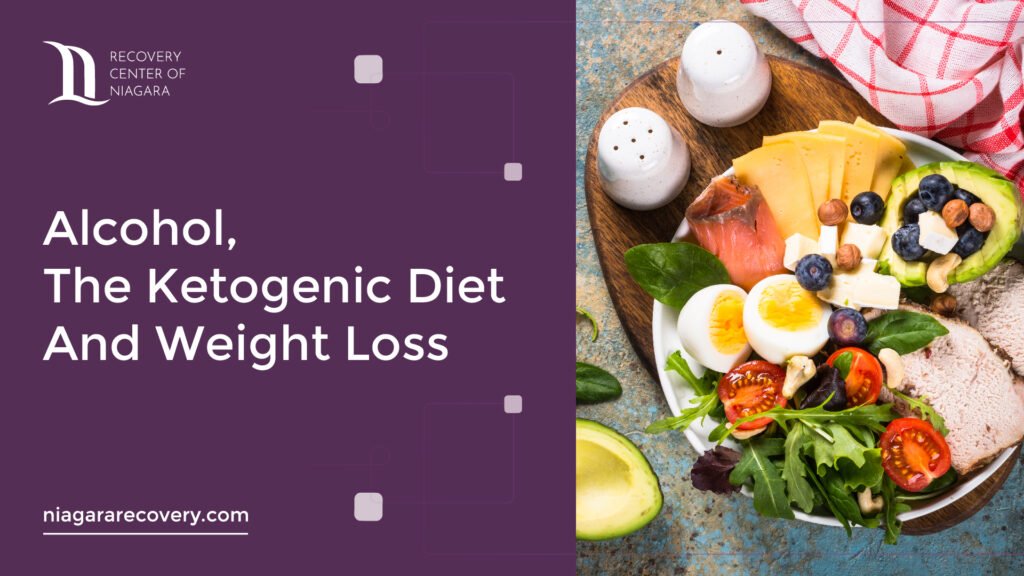
This image is property of assets-global.website-files.com.
Alcohol and Health Risks
Long-Term Effects of Alcohol Consumption
Excessive and chronic alcohol consumption can have severe long-term effects on your health. These may include liver damage, heart disease, increased risk of certain cancers, and neurological disorders. Heavy drinking over an extended period can also lead to dependence and addiction, causing a myriad of physical and mental health problems.
Alcohol’s Impact on Liver Health
The liver is responsible for metabolizing alcohol and breaking it down. Excessive alcohol consumption over time can lead to alcoholic liver disease, which includes fatty liver, hepatitis, and cirrhosis. These conditions can impair liver function and have a profound impact on overall health. It’s crucial to drink alcohol in moderation and give your liver time to recover.
Alcohol and Nutrient Deficiencies
Alcohol can interfere with the absorption and utilization of essential nutrients in the body, leading to deficiencies. Chronic alcohol consumption can deplete important vitamins and minerals, such as vitamin B12, folate, magnesium, and zinc. These nutrient deficiencies can have wide-ranging consequences on various bodily functions and overall health. Maintaining a well-balanced diet and avoiding excessive alcohol consumption can help mitigate the risk of nutrient deficiencies.
Alcohol and Keto-Friendly Alternatives
Non-Alcoholic Keto-Friendly Drinks
If you want to enjoy a drink without consuming alcohol, there are numerous non-alcoholic keto-friendly options available. Sugar-free and unsweetened beverages such as herbal teas, flavored sparkling water, and coffee can be enjoyed on a keto diet. Additionally, there are various keto-friendly mocktails and infused water recipes that can provide a refreshing and flavorful alternative to alcoholic beverages.
Mocktail Recipes for Keto Dieters
Mocktails, or alcohol-free cocktails, can be a fun and delicious way to enjoy a refreshing drink on a keto diet. Some keto-friendly mocktail recipes include a sparkling lemonade made with lemon juice, sparkling water, and a natural sweetener like stevia. Another option is a cucumber and mint spritzer, which combines fresh cucumbers, mint leaves, lime juice, and sparkling water. These mocktails can provide the same sense of indulgence and social enjoyment without the alcohol or excess carbs.
Hydration and Electrolytes on a Keto Diet
When consuming alcohol on a keto diet, it’s important to prioritize hydration and replenish electrolytes. Alcohol can have a dehydrating effect on the body, and dehydration can lead to various symptoms such as headaches, fatigue, and muscle cramps. To stay hydrated, make sure to drink plenty of water throughout the day, especially when consuming alcohol. Additionally, consider supplementing with electrolytes, such as magnesium, potassium, and sodium, to replenish what may be lost through increased urine output.
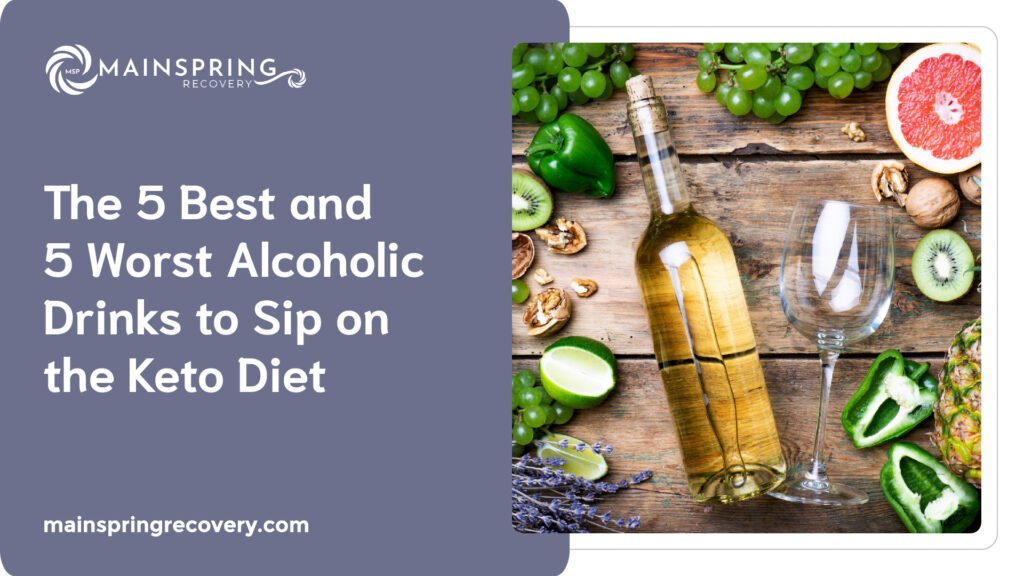
This image is property of assets-global.website-files.com.
Alcohol and Keto Adaptation
Adapting to Alcohol on a Keto Diet
Adapting to alcohol on a keto diet requires mindful planning and moderation. It’s essential to understand the carbohydrate content of different alcoholic beverages and choose options that align with your keto goals. As alcohol can temporarily inhibit ketosis, it may be helpful to plan your alcohol consumption around periods when you’re less concerned about being in ketosis, such as during maintenance phases or special occasions.
Tolerance Changes on Keto
Following a keto diet can impact your alcohol tolerance. When you’re in ketosis, your body becomes more efficient at metabolizing alcohol, which can lead to a faster and stronger response to alcohol. This means that you may feel the effects of alcohol more quickly and intensely than before. It’s important to monitor your alcohol intake and listen to your body’s signals to prevent overconsumption and potential negative effects.
Considerations for Drinking Alcohol on Keto
Before consuming alcohol on a keto diet, it’s crucial to consider a few factors. First, calories from alcohol still count toward your overall energy intake, so be mindful of your calorie consumption if you’re aiming for weight loss. Second, alcohol can lower inhibitions and lead to poor food choices, potentially derailing your progress. Finally, alcohol can interfere with sleep quality, and proper rest is essential for overall health and weight management. Be aware of these considerations and make informed choices regarding alcohol consumption while following a keto diet.
Tips for Drinking Alcohol on Keto
Timing of Alcohol Consumption
When planning to consume alcohol on a keto diet, timing can be crucial. Since alcohol temporarily interrupts ketosis, it may be best to consume alcoholic beverages after a period of fasting or during a meal that includes healthy fats and protein. This way, alcohol is less likely to impact blood sugar levels and the fat-burning process.
Choosing Low-Carb Mixers
The choice of mixers can greatly impact the carbohydrate content of your drink. Opt for low-carb mixers such as club soda, sparkling water, or diet soda when enjoying spirits or cocktails. Avoid sugary mixers, fruit juices, and flavored syrups that can significantly increase the carbohydrate content of your drink.
Planning Ahead for Social Events
If you know you’ll be attending social events where alcohol will be served, it can be helpful to plan ahead. Consider eating a keto-friendly meal before the event to help curb hunger and make better choices when it comes to alcohol and food. Communicate your dietary needs with friends and loved ones, so they can support and respect your choices. Remember, you can still enjoy yourself while adhering to your keto lifestyle.
In conclusion, while alcohol can be enjoyable and incorporated into a keto diet in moderation, it’s important to be mindful of its effects on ketosis, weight loss, and overall health. Choose low-carb options, practice moderation, and prioritize hydration and nutrient intake. By being aware of the impact of alcohol on your body and making informed choices, you can continue to enjoy the occasional drink while still achieving your keto diet goals.
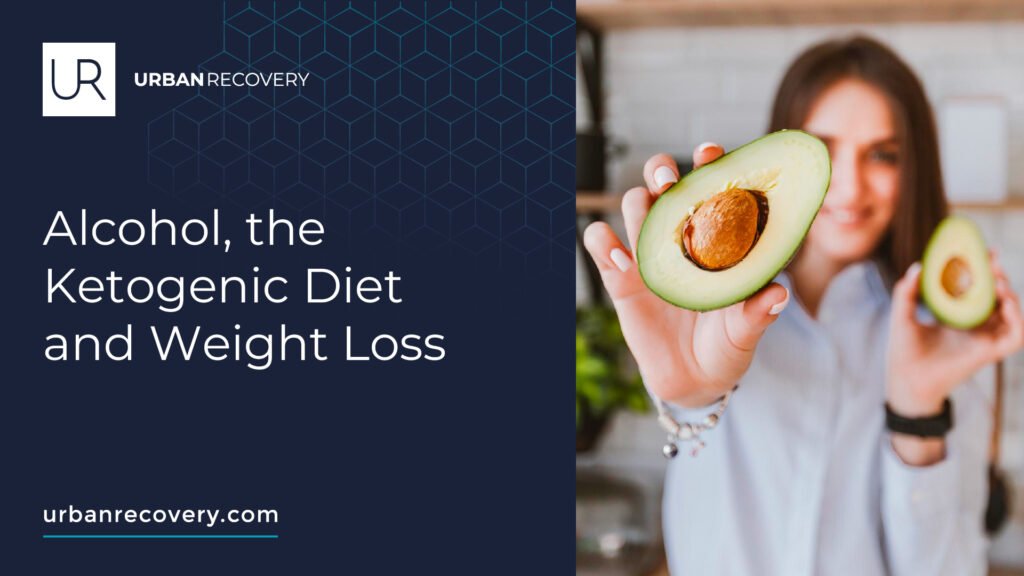
This image is property of assets-global.website-files.com.

